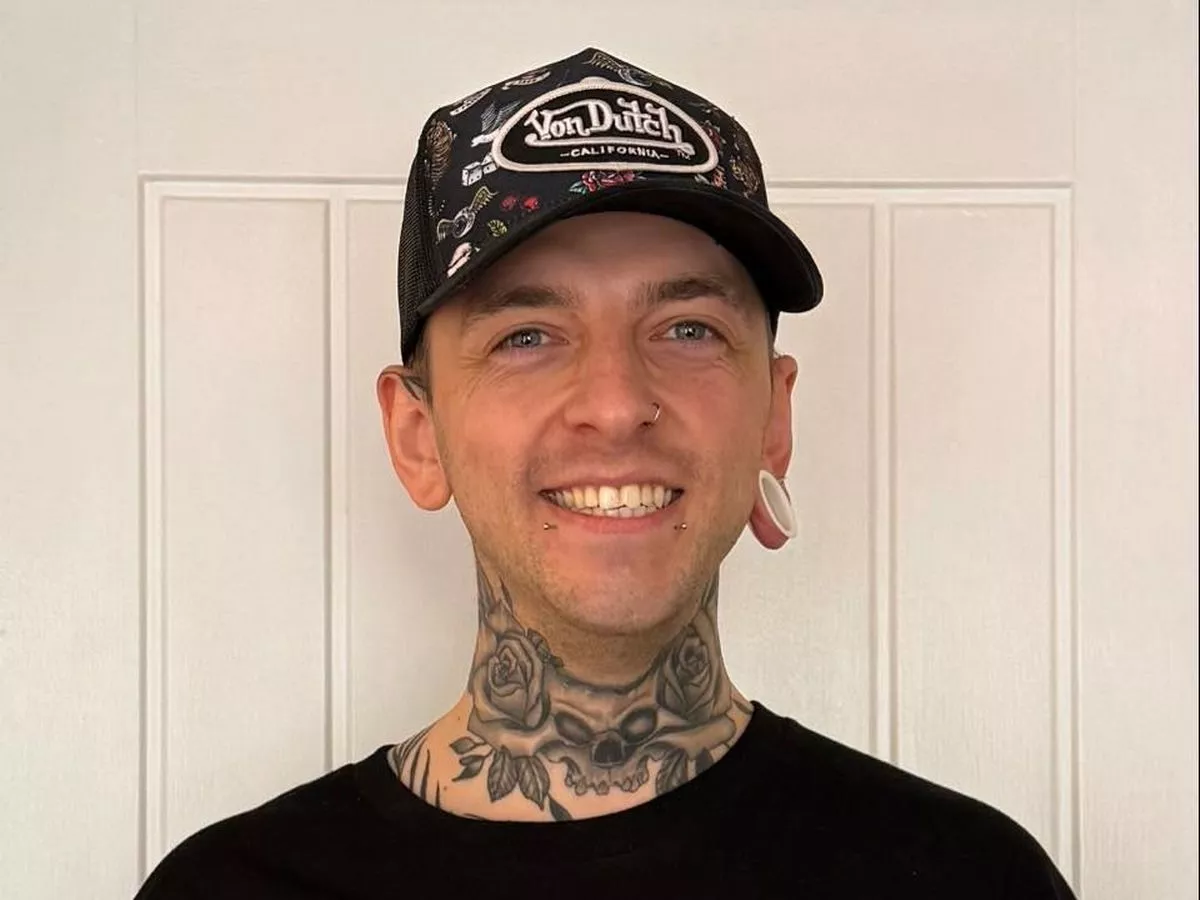Copyright The New York Times

For months, immigration crackdowns in Southern California have transformed life in Bell Gardens, the majority-Latino suburb where Alo Hurtado lives. Neighbors have been hauled off by masked federal agents. Families have curtailed trips to supermarkets and churches. Many people have stopped going out without their passports, including Mr. Hurtado’s mother, a naturalized citizen. So when it came time to vote in California’s special election, Mr. Hurtado, 42, decided not to vote by mail, as many in the state do. Instead, he went to a polling place in a landmark park with his Mexican-born parents this week to vote early and in person. Given all his community had gone through, he was worried about mail tampering — and he was angry. “Especially here in California,” he said, “we need to speak up.” Elections on Tuesday in California, New Jersey and other states are unfolding as the Trump administration’s immigration raids have spread fear in Latino communities across the country. That fear of Immigration and Customs Enforcement activity has become an X factor in next week’s elections. And for some Latino voters, the Trump administration’s escalation of force appears to be not a deterrent to casting a ballot but a motivation. In Virginia, where the Republican nominee for governor, Lt. Gov. Winsome Earle-Sears, is running against Abigail Spanberger, a Democratic former congresswoman, one Hispanic business owner said the most important issue in the election was the ICE raids. “It is something we are feeling morning and night, and it stirs a lot of sadness,” said the business owner, Carlos Castro, a naturalized U.S. citizen from El Salvador and an independent voter who runs Todos Supermarket in Woodbridge, Va. He cast his ballot during the early-vote period. Elvis Cordova, 49, a government relations consultant in Alexandria, Va., who plans to cast an early vote for Ms. Spanberger, said the federal crackdown had raised the election’s stakes. “A lot of Latin American folks have come here because they have seen their countries go authoritarian — their rights were slowly eroded,” Mr. Cordova said. Now, he added, many are “seeing shades of that happening here.” In New Jersey, the mayor of the city of Passaic, Hector Lora, said he doubted that the Trump administration’s decision to dispatch federal election monitors to Passaic County would scare off Latino voters. The county is considered crucial in the neck-and-neck governor’s race between Jack Ciattarelli, a Republican, and Mikie Sherrill, a Democratic member of Congress. “We’re Jersey,” Mr. Lora said. “We will make it to the polls. We will cast our votes. And we will have our voice.” Mayor André Sayegh of Paterson said he saw no fear or reluctance to vote among residents in his city, Passaic County’s biggest, which is more than 60 percent Latino. If anything, he said, he saw determination. “I feel like this is the way that people feel about their ballot — like they could fight back,’‘ Mr. Sayegh said. Last week, the Justice Department announced it would monitor elections in six counties with large Latino populations in California and New Jersey, at the request of Republican Party officials in those states. In New Jersey, Republicans had complained that Democratic members of the Board of Elections in Passaic County had blocked the use of security cameras in ballot storage areas and refused to require a sign-in log for workers with access to mail-in ballots. California Republican officials cited “reports of irregularities” and general concerns that local officials were failing to catch flawed and duplicate ballots or cull ineligible names from voter lists. The Justice Department said personnel from its Civil Rights Division would be stationed at polling places and offices of registrars of voters “to ensure transparency, ballot security, and compliance with federal law.” The California attorney general, Rob Bonta, said that the federal government had no legal basis to interfere in a state election, that the Republican complaints were baseless and that California would deploy its own observers, to monitor the monitors. Latino Republicans dismissed any concerns raised by Democrats that the ICE raids or Justice Department election monitoring might hurt Hispanic turnout. Rudy Melendez, 57, a lighting technician in the North Hollywood section of Los Angeles and a conservative, scoffed at the notion that a U.S. citizen would hesitate to vote because of a crackdown on unauthorized immigrants. If turnout ends up being low, he said, it could be because voters tend to be less tuned in to off-year special elections. “People are going to vote if they want to vote,” he said. State Senator Suzette Martinez Valladares, a Republican from Santa Clarita, said that if Latino voter turnout was low in the California election, it would be because of “frustrations on all sides,” not because of federal agents or monitors. Latino voters have become pivotal in this century in American elections. They are among the fastest-growing demographics in the United States, disproportionately young and less entrenched with political parties. In 2024, Latino swing voters moved by economic dissatisfaction were instrumental in President Trump’s return to office. That support has been tested as the president has sought to arrest and deport unauthorized immigrants on a large scale, separating mixed-status families and sweeping up Latinos who are U.S. citizens in some cases. Throughout his first term and his re-election campaigns, the president has asserted falsely that large numbers of undocumented immigrants were illegally casting ballots. Héctor Sánchez Barba, the president of Mi Familia Vota, which oversees some of the largest Latino voter mobilization groups in the country, said the false claims over illegal voting had caused members of his group to endure harassment from conservative activists filming and photographing their activities. His group has since had to increase its spending on security guards, digital forensics to prevent hacking and safety and de-escalation training for canvassers. In California, voting experts said Latino voters typically made up about a quarter of the turnout in statewide elections. As of early Sunday, about 18 percent of the vote, including in-person early voting and mail-in ballots counted so far, had been cast by Latinos, according to Political Data Inc., a data firm based in California. That level of participation is normal for a demographic that tends to vote in person and close to Election Day, voting experts said. Gov. Gavin Newsom persuaded the Democrats who control the State Legislature to approve a ballot measure that would let state lawmakers redraw California’s congressional districts. Ordinarily, the state’s political maps are determined by a nonpartisan commission. The proposed shift was a response to Mr. Trump’s push to get Republicans in Texas and other states to use redistricting to help his party keep control of the House of Representatives. The California measure, called Proposition 50, requires voter approval and is widely expected to pass. The proposed new map could net as many as five congressional seats for Democrats. Mr. Newsom has said that the Justice Department monitors heading to election sites in Los Angeles, Orange, Riverside, Kern and Fresno counties are “a setup.” If Democrats object to election monitors, he told KQED, a Bay Area public radio station, “you’re also going to see ICE deployed — you’re going to see these masked men from Border Patrol also near voting booths and polling places.” California has stringent prohibitions on voter intimidation, stemming from past periods of anti-immigrant backlash. In 1992, the California Republican Party settled a civil rights case with five Orange County plaintiffs after a Republican legislator’s campaign put uniformed guards at polling places in 1988 to deter Latinos from voting. The case cost the party nearly $500,000 in payouts and led in 1990 to the legislator’s defeat. The Democrat who defeated that legislator and took his seat, State Senator Tom Umberg, said he worried that the Trump administration “could do a reprise of 1988,” adding that federal agents or their supporters “could go up to somebody in line to vote: ‘Are you a citizen? Do you have proof? Where do you live?’” In Bell Gardens, Mr. Hurtado’s mother, Josefa Rivera, 65, said in Spanish that she had become a citizen after Californians passed Proposition 187, a 1994 ballot initiative championed by the Republican governor at the time, Pete Wilson, that would have barred undocumented immigrants from public services including schools and nonemergency health care. Federal courts ruled it unconstitutional. That era did not compare to the injustices she said she had seen this year. She said she was voting for Proposition 50, and was doing so not only for herself but on behalf of her neighbors who are undocumented immigrants and cannot vote. “One has to speak up for those who can’t,” she said.



